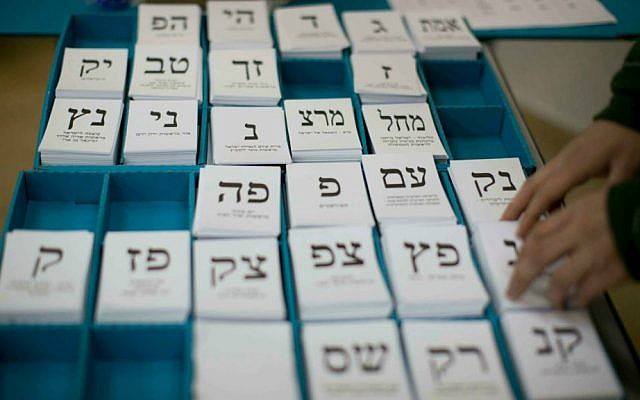Israeli Elections Will Be Held in 2019. The Question Is, When?
The current government’s term is scheduled to end in November 2019. But unlike in the United States, Israeli governments generally don’t fulfill their full four-year terms.

The current government’s term is scheduled to end in November 2019. But unlike in the United States, Israeli governments generally don’t fulfill their full four-year terms. No Israeli government has completed its four years since 1988. Israeli governments are based on coalitions of several parties adding up to at least 61 – in order to withstand a no-confidence vote in the 120-member Knesset.
In the past couple of weeks, the current government of Prime Minister Benjamin Netanyahu dropped to 61 members when Defense Minister Avigdor Lieberman quit his position and pulled his party, Yisrael Beytenu (Israel Our Home), and its six seats out of the government. Ostensibly, Lieberman resigned at that point because he claimed Israel should have declared a full-out war against Hamas in Gaza and didn’t. In truth, he needed a platform on which to try to rebuild his flailing party.
Within days, sensing Netanyahu’s blood in the water, Education Minister Naftali Bennett threatened that if he wasn’t named defense minister, his party, Habayit Hayehudi (Jewish Home), would leave the government, dropping the number to 53. While Netanyahu managed to convince Bennett to remain in the government, the fact also remains that his government is tottering, and any coalition member could bring it down.
Just a day later, Israeli police recommended that Interior Minister Arye Deri be charged with fraud, breach of trust, tax-related offenses, obstruction of justice, perjury and money laundering. Deri, who is chairman of the Shas party, had served as interior minister years before, and had been convicted of bribery and fraud and served 22 months in prison.
Surveying the latest polls and his coalition partners, Finance Minister Moshe Kahlon told members of his party Kulanu that he doesn’t believe the coalition will remain intact beyond March.
News reports explain Netanyahu’s dilemma. Although public opinion polls have predicted strong election results for his party, Likud, for the past several months, recent surveys have shown him losing support because of the ceasefire with Hamas that his government approved.
In addition, Israeli police have already recommended several indictments of Netanyahu. He wants to delay the election at least until May. Corruption indictments against him in several cases are expected in the first quarter of 2019, and he knows that the chances of his coalition members standing by him once he’s under indictment are slim.
In Israel, while government ministers must resign their posts once indicted, it’s not clear whether the prime minister must do so. The last prime minister, Ehud Olmert, who was under investigation during the final months of his government, resigned before the actual indictments were filed.
Bottom line is that with only 61 members of his coalition, Netanyahu is held hostage to any of the parties who might threaten to pull out of the government. Conversely, Netanyahu can find some excuse to break apart his coalition and bring the country to the polling stations. That’s what he did in his previous government. He got rid of two ministers when he wanted to stop legislation that would have negatively impacted his billionaire supporter, Sheldon Adelson. The Las Vegas casino owner started a free daily newspaper in Israel, Yisrael Hayom (Israel Today), that has become the voice of the Netanyahu government and the largest circulation newspaper in the country.
So, even if the election isn’t called immediately, it’s just a matter of time.



comments